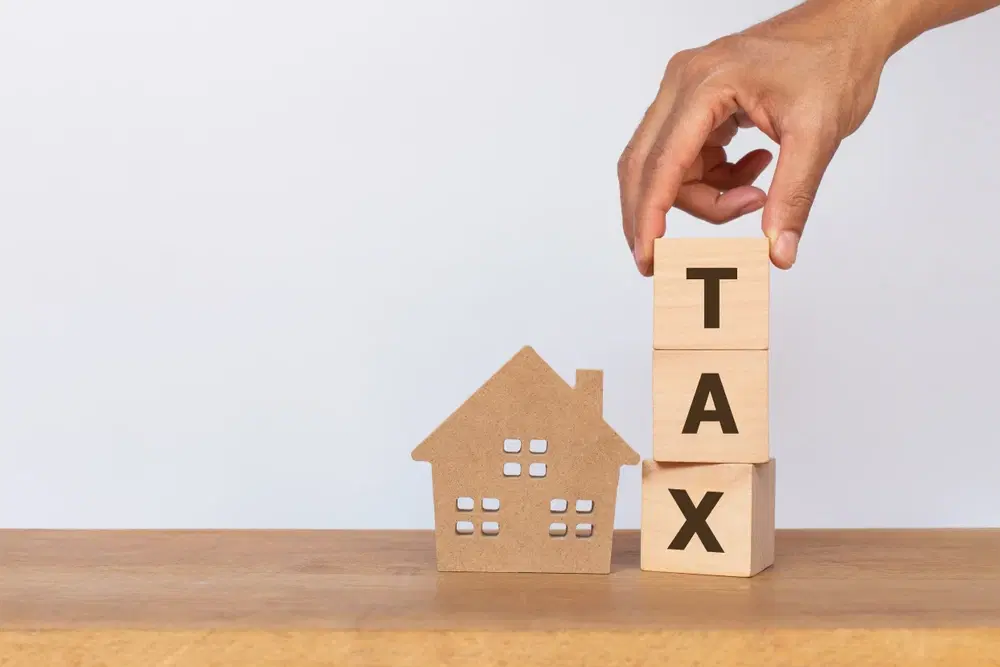
Loans
•04 min read

Are you wondering, can i claim hra and home loan benefits simultaneously? Many individuals find themselves in this exact situation. This guide will help you understand the rules, conditions, and strategies for claiming both HRA and home loan benefits simultaneously. By the end of this read, you'll have a clear idea of how to navigate the complex tax regulations while avoiding common pitfalls. You can work towards reducing your taxable income and ensuring that every rupee works for you.
Generally, House Rent Allowance (HRA) is a salary component provided to employees to meet rental expenses. It is considered as a tax-saving tool under Section 10(13A) of the Income Tax Act. To be eligible, one must show proof of rent payments and live in a rented accommodation. Calculations for HRA exemption depend on your salary package, the actual rent paid, and the city in which you reside. For instance, if you live in a major city and pay substantial rent, the exemption could be a significant deduction from your taxable income.
Home loans provide attractive tax benefits under different sections of the Income Tax Act. Interest on the home loan can be deducted up to ₹2 lakh under Section 24(b) each year. Moreover, the principal repayment qualifies for a deduction of up to ₹1.5 lakh under Section 80C. These benefits also apply to under-construction properties; however, deductions for such properties are applicable only after possession, which means planning ahead is crucial. The eligibility for claiming these deductions generally requires that you must be the owner of the property with corresponding documentation such as loan interest certificates and loan statements.
Taxpayers can claim both HRA and home loan benefits under certain conditions. For example, if you are living in a rented accommodation due to your work location while owning a home in another city, you can earn deductions on both counts. Another instance might be when you own a let-out property while residing in a rental home. It is also possible to have a self-occupied home in one city while renting in another, provided you maintain proper documentation for both claims.
A common query is whether one can claim HRA and a home loan in the same city. The answer is yes, provided you have valid reasons for renting out your accommodation despite owning a home in that same city. This could be due to factors such as proximity to your workplace or family needs. Ensuring that you have concrete evidence like rental agreements and proof of original home loan documents can help in successfully claiming the deductions.
There are unique cases that warrant special attention. For instance, if you are looking into claiming HRA and home loan benefits for an under-construction property, remember that while HRA can be claimed if you are in rented accommodation, home loan deductions for an under-construction property are available only after you take possession. Additionally, in situations where you might be paying rent to your parents, valid proof such as a rental agreement and rent receipts will be necessary. For individuals not receiving HRA, utilising Section 80GG is an option; however, it is important to note that this cannot be combined with home loan deductions.

When claiming HRA, it is crucial to retain and submit all relevant documents. These include rent receipts and a valid rental agreement, along with the landlord’s PAN details if your annual rent exceeds ₹1 lakh. Your salary slips that display the HRA component also form an essential part of your documentation.
For home loan deductions, you must secure and preserve loan interest certificates provided by your lender. Additionally, proof of principal repayment through detailed loan statements is required. It is equally important to have all property ownership documents in order to support your claim.
Accurate submission of declaration forms is key to ensuring that your tax claims for both HRA and home loan benefits are processed smoothly. Mistakes such as incomplete documentation or miscalculations can lead to penalties or rejection of claims. Paying close attention to these details is essential for seamless compliance.
To truly benefit from the tax deductions, you need to calculate HRA exemption and home loan deductions accurately. It is advisable to strike the right balance between the two deductions so that your taxable income is minimised ethically and effectively. Understanding your financial situation and planning ahead are vital steps in this process. Avail your home loan and earn up to 500 NeuCoins – remember, 1 NeuCoin equals 1₹ saving – to further boost your financial wellness.
One of the most frequent mistakes is attempting to claim HRA on a property that you own without valid proof such as a let-out agreement. Another is not meeting the eligibility criteria for home loan deductions. These errors not only lead to penalties but can also result in missed opportunities for tax savings. It is always better to double-check your documentation and eligibility requirements before filing your tax returns.
-1e18e07d-89f4-4e70-9a99-1bf8d854b9d8.png&w=3840&q=75)
Given the complexities involved, seeking advice from a professional tax advisor can be extremely beneficial. A tax expert can help you ensure that all conditions are met and that your documentation is in order, ultimately enabling you to make the most of your available deductions.
Yes, under specific conditions such as renting near your workplace while owning a home elsewhere.
You can claim HRA if you are living in rented accommodation, but home loan deductions for under-construction properties are available only after you take possession.
Yes, provided you pay rent to your parents and have valid proof like a rental agreement and rent receipts.
You cannot claim HRA for your own house unless it is let out or rented to someone else.
No, Section 80GG is for those not receiving HRA and cannot be combined with home loan deductions.
In summary, by understanding your eligibility and ensuring proper documentation, you can effectively reduce your taxable income with both HRA and home loan benefits. Stay informed of tax regulations and consult a professional for tailored advice. Remember, your dreams and financial plans are closer than you think; sometimes, a simple adjustment in your tax planning can make a big difference.